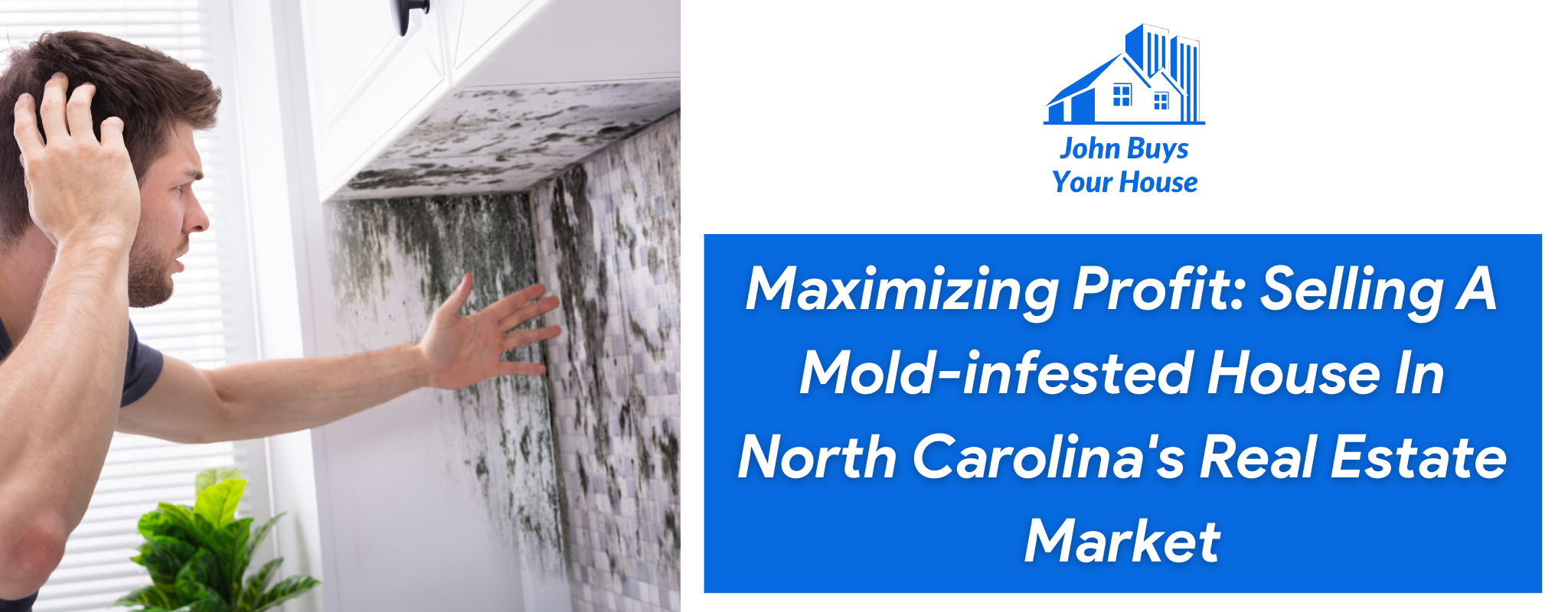
Understanding North Carolina’s Mold Laws
If you are trying to sell a house in North Carolina with mold, you should know the state’s mold rules. In North Carolina, sellers are legally required to tell possible buyers about any mold problems they know about.
If you know your house has mold, you must tell the buyer before selling it. Also, North Carolina has specific rules for removing mold and doing inspections properly.
If the seller doesn’t follow these rules, they could face legal consequences. In North Carolina’s competitive real estate market, sellers who want to make the most money when selling a moldy house must learn and carefully follow these rules.
TABLE OF CONTENTS
- The Truth About Mold Remediation: Is It Necessary?
- What Is Mold And How Does It Affect Home Buyers?
- Identifying Common Sources Of Mold Infestations
- Steps To Effective And Safe Mold Remediation
- Legal Implications Of Selling A House With Mold In North Carolina
- Responsibilities For Sellers Dealing With Mold Issues
- Key Considerations For Buyers When Purchasing A Home With Mold
- Understanding The Significance Of Addressing Mold Problems
- North Carolina’s Stance On Mold And Its Impact On Property Sales
- Navigating The Traditional Selling Process In Light Of A Mold Problem
- How Can Mortgages Be Affected By The Presence Of Mold?
- Essential Steps For Success In Selling A House With Mold In North Carolina
- Do You Have To Disclose Mold In NC?
- Can You Sell A House With Toxic Mold?
- Is Mold A Deal Breaker When Buying A House?
- Does Mold Need To Be Disclosed?
The Truth About Mold Remediation: Is It Necessary?
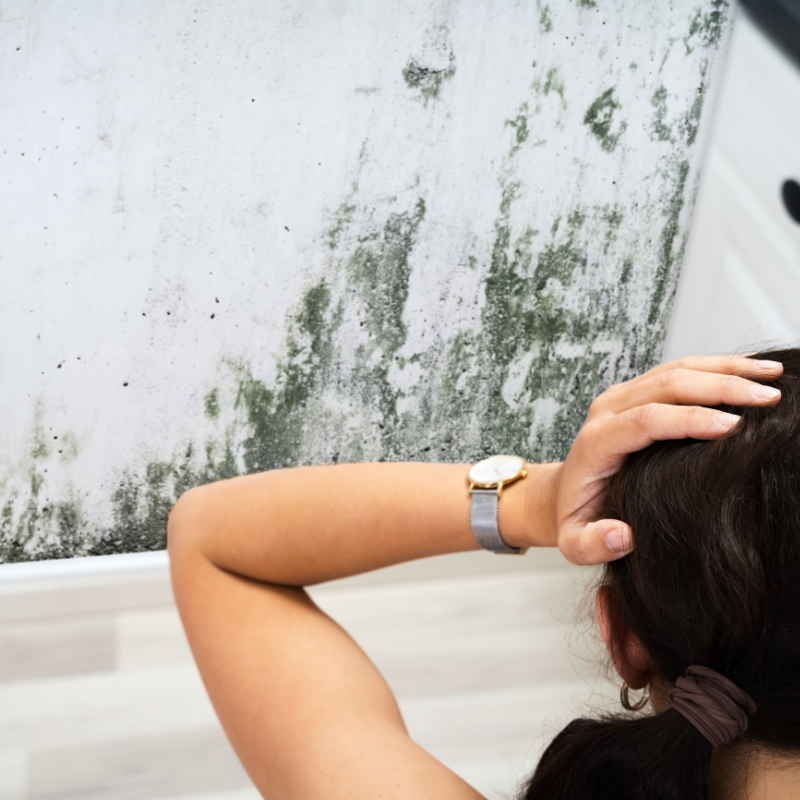
One of the most important things to consider when selling a moldy house in North Carolina is whether or not the mold needs to be cleaned up. Many homeowners might be hesitant to go through this pricey process, but the truth is that it can greatly affect how much money they make from the sale.
Finding and getting rid of any mold evidence on the property is part of mold remediation. This can be a big turnoff for people considering buying a house. Because of the high humidity in North Carolina, mold growth is a very common issue that can’t be avoided.
By hiring professionals to get rid of mold, homeowners can ensure their homes are safe and appealing to potential buyers, which will help them make the most money in the competitive real estate market.
What Is Mold And How Does It Affect Home Buyers?
As a type of fungus, mold grows best in damp and damp places. It can grow on walls, floors, and ceilings, among other places.
Not only is mold ugly, but it can also be very bad for people’s health. In North Carolina’s real estate market, mold can make it much harder for people to get a good price when they sell their home.
People often don’t buy homes with mold because they fear their health and the cost of fixing the problem. To make the most money and sell their home quickly in this competitive market, sellers need to know what mold is and how it can affect buyers.
Identifying Common Sources Of Mold Infestations
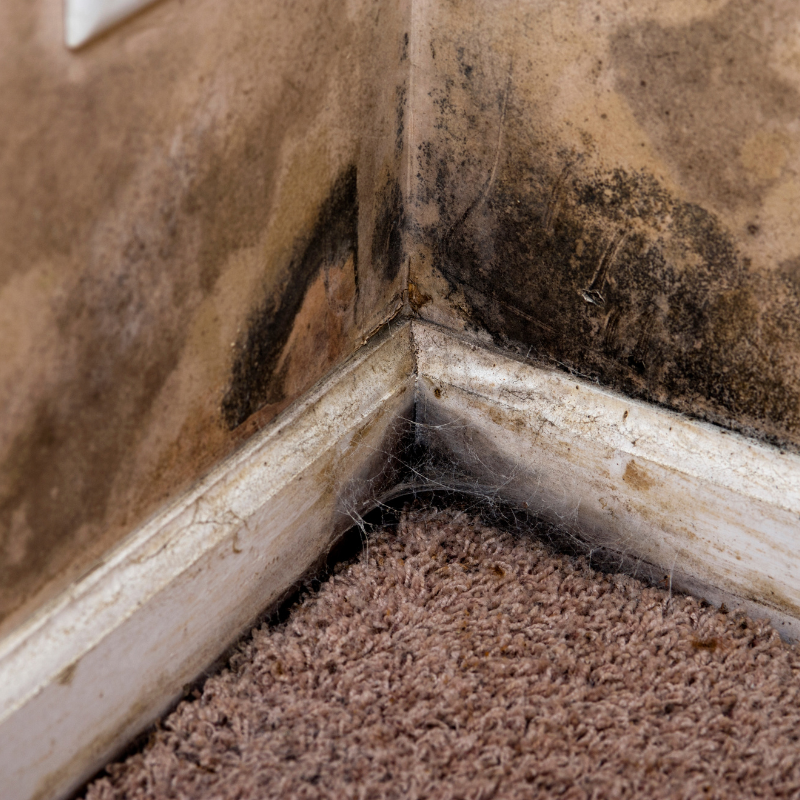
Mold growth is a common issue that can make a house in North Carolina’s real estate market worth much less. To get the most money when selling a house with mold, you should first figure out where the mold is coming from.
Some common causes are insufficient airflow, leaks or water damage, and high humidity. All of these problems can make it easy for mold to grow and spread.
You should also look for signs of flooding or water problems in the past that could have led to mold growth that you can’t see. If buyers find these issues and fix them before putting their house on the market, they can raise the price and increase their chances of selling.
Steps To Effective And Safe Mold Remediation
Effective and safe mold remediation maximizes profit when selling a mold-infested house in North Carolina’s real estate market. The first step is to identify the source of the mold and address any underlying issues, such as leaks or moisture problems.
Next, remove all affected materials and clean the surfaces with appropriate solutions. Proper ventilation and containment measures should be taken to prevent cross-contamination during remediation.
It’s also important to use protective gear and follow safety protocols to ensure the health of both workers and potential buyers. Once the mold has been completely removed, it’s essential to dry the area to prevent future growth thoroughly.
Finally, hiring a certified professional for mold testing and remediation can ensure the job is done correctly and safely, increasing the chances of a successful sale without compromising profit.
Legal Implications Of Selling A House With Mold In North Carolina
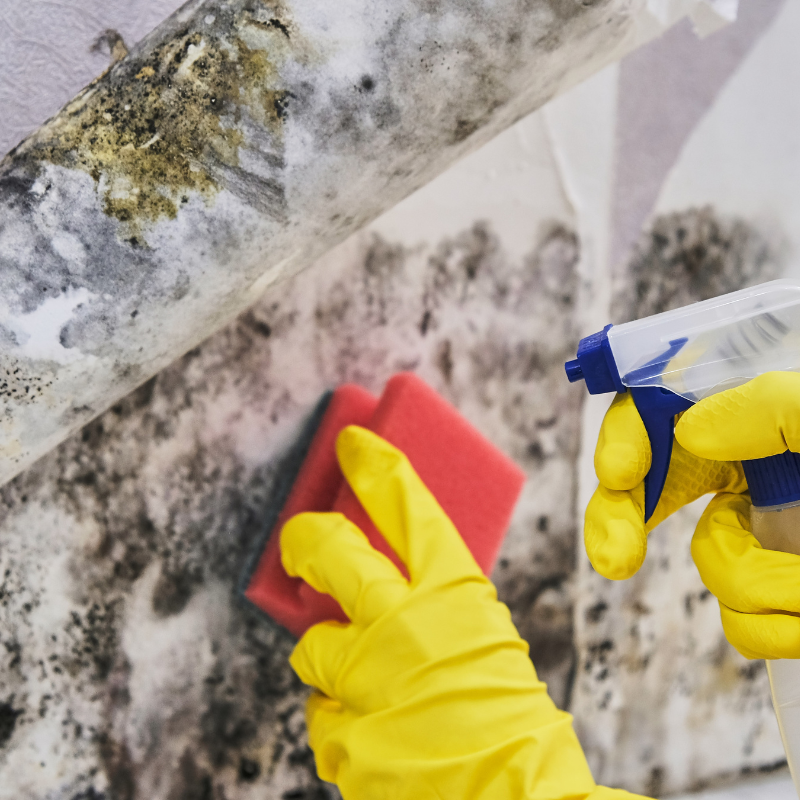
If you try to sell a house in North Carolina with mold, you could be breaking the law. Mold is a regular problem that can come up when buying or selling a home, and you should know the laws about reporting it and getting rid of it.
In North Carolina, sellers must tell possible buyers about any mold problems they know about. If they don’t, they could be sued. There is also a chance that a buyer could sue the seller for not telling them about mold if they find it after buying the house.
Buyers and real estate owners must know how to complete a deal to keep things legal.
Responsibilities For Sellers Dealing With Mold Issues
In North Carolina’s real estate market, sellers of moldy homes have several important duties to remember. Telling possible buyers that there is mold is the first and most important duty.
This means giving them any paperwork or records related to the mold problem and being open and honest about how bad the infestation is. Before putting the house on the market, the buyers must also fix the mold issue.
This might mean getting a company to get rid of the mold and ensuring that all the necessary repairs are done to prevent it from returning. Finally, sellers must be ready to talk with buyers about any price drops or fixes due to the mold.
Not taking care of these duties could get them in trouble with the law and hurt their image as a seller.
Key Considerations For Buyers When Purchasing A Home With Mold
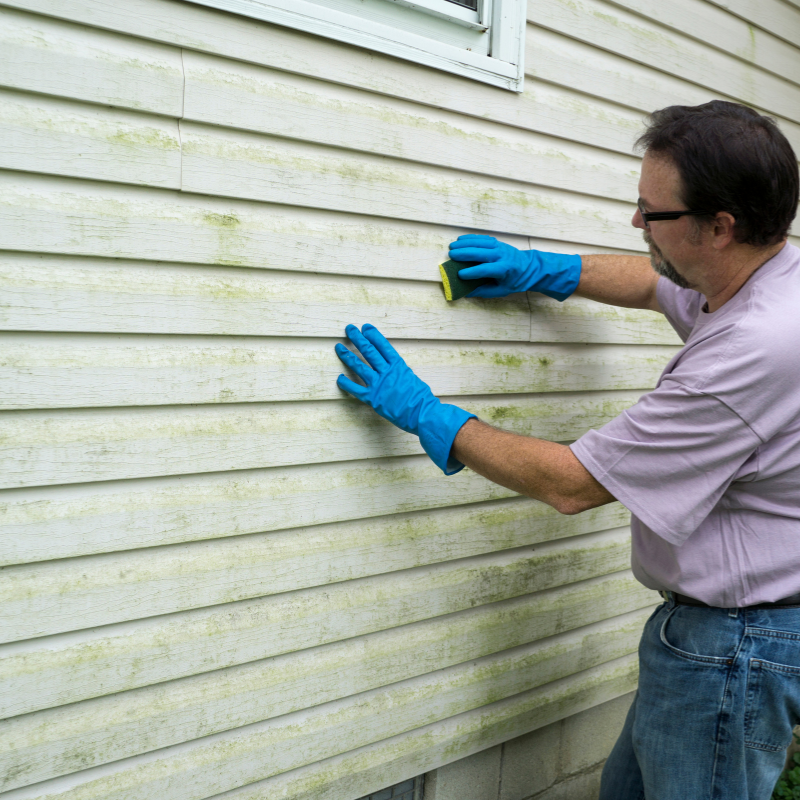
If someone is looking to buy a house in North Carolina with mold, they should keep a few important things in mind. First, it’s important to carefully check the property for any signs of mold growth and figure out how bad the problem is.
This will help you determine how much it might cost to fix the problem and whether it’s worth buying the house. Additionally, buyers should find out about any previous efforts to remove mold and request paperwork or proof of completion.
In addition, it is important to know the health risks of being around mold and decide if it is safe for you and your family to live in the house. Also, buyers should talk to a professional inspection or mold expert to ensure the house is properly tested and any potential dangers are found.
Lastly, if you want to make the most money when you sell the house in the future, you need to negotiate a fair price considering the mold.
Understanding The Significance Of Addressing Mold Problems
To sell a house in North Carolina, you must immediately take care of any mold issues. Mold can make a house much less valuable and make it hard to sell to people who want to buy it.
It can also be bad for the health of everyone who lives in the house. So, people selling their homes need to know how important it is to take care of mold issues before they put their homes on the market.
Sellers can make the most money and increase their chances of a good sale by removing mold infestations and ensuring the property is mold-free. This is good for the seller and gives potential buyers peace of mind because they don’t want to buy a house with mold problems.
North Carolina’s Stance On Mold And Its Impact On Property Sales
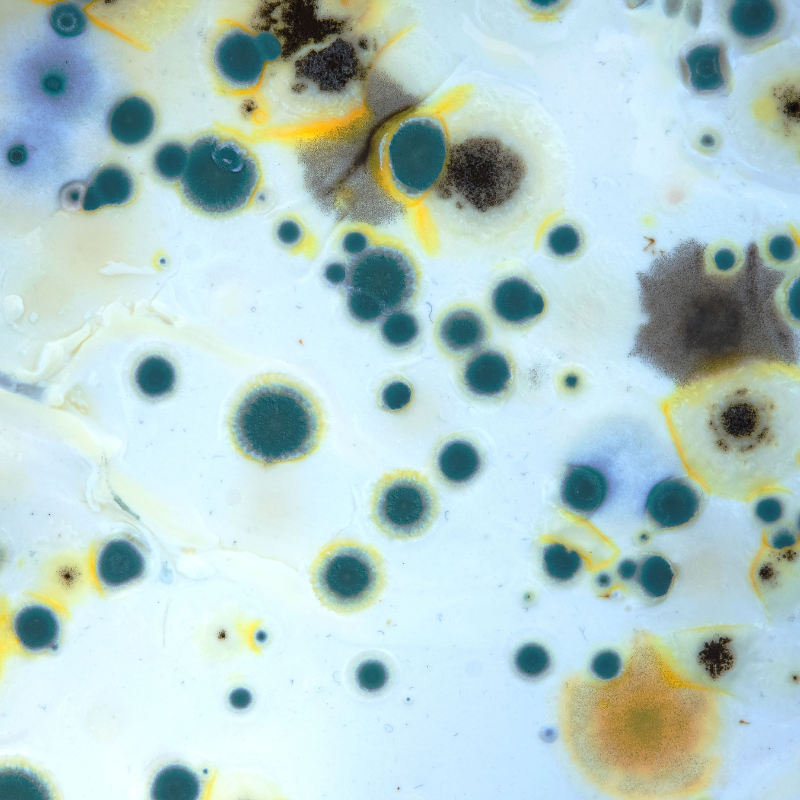
North Carolina’s real estate market is known for its strict stance on mold and how it can significantly impact property sales. With high humidity and moisture levels, mold growth is a common issue in homes across the state.
As a result, potential buyers often hesitate to purchase properties with a history of mold infestations, even if they have been remediated. Some lenders may even refuse to finance a home with a past or current mold problem.
This can make selling a mold-infested house in North Carolina quite challenging for homeowners looking to maximize their profit. Sellers need to understand the laws and regulations surrounding mold disclosure in this state and take necessary steps to properly remediate any affected areas before putting their property on the market.
Navigating The Traditional Selling Process In Light Of A Mold Problem
There is a lot of pressure to sell a moldy house in North Carolina, especially if you are using the standard selling process. You should do this because mold can make a house look and feel much less appealing, making it hard to sell.
As a homeowner, you need to know what steps to take to sell a house with mold and how they differ from the normal steps. Before you put your house on the market, you need to think about many things, from finding the source of the mold to finding reputable companies that can get rid of it.
You can improve your chances of making the most money even though you have a mold problem by being aware of these problems and taking steps to solve them.
How Can Mortgages Be Affected By The Presence Of Mold?
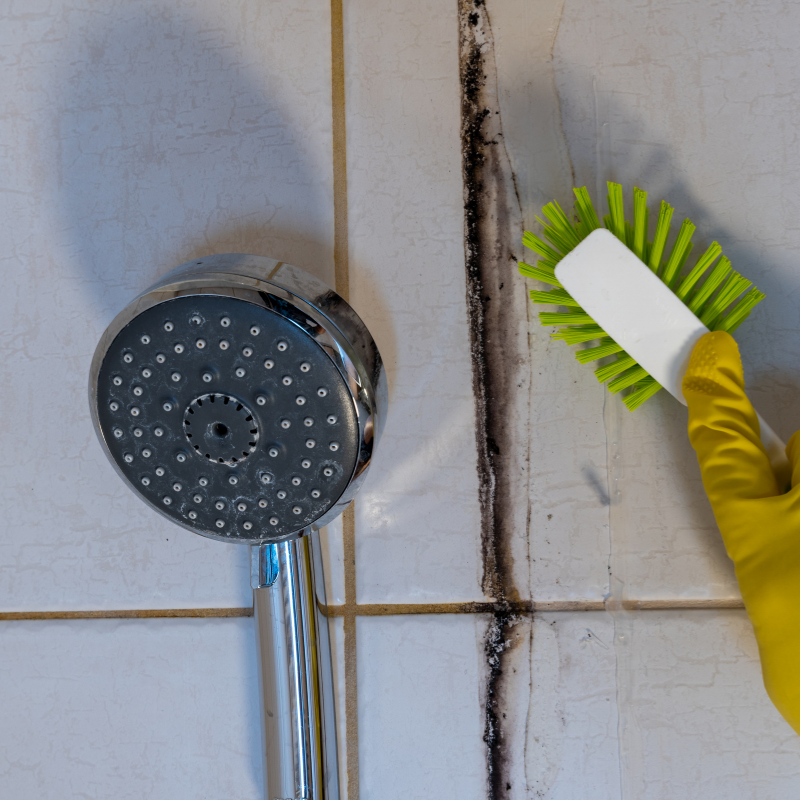
In North Carolina’s competitive real estate market, mold can be a big problem for people who want to sell their homes. Mold not only makes people sick and lowers the value of a home, but it can also have a big effect on debts.
Before approving a mortgage for a possible buyer, lenders will probably want to see a full inspection of the property and have any moldy areas fixed. This means buyers must take care of the mold problem before putting their house on the market to ensure the sale goes smoothly.
If they don’t, they could lose possible buyers or have their mortgage applications turned down because of mold. So, people who want to sell a moldy house in North Carolina must do everything possible to eliminate the mold and make as much money as possible.
Essential Steps For Success In Selling A House With Mold In North Carolina
In North Carolina’s real estate market, important steps must be taken to get the most money when selling a house with mold. First, hiring a reputable company is important to remove the mold completely.
This will not only keep possible buyers safe but also keep you out of trouble with the law in the future. Next, it’s important to let potential sellers know that there is mold and show them all the paperwork and proof that it has been fixed.
Another thing that can help the selling process is getting a real estate agent who knows how to sell homes with mold. Lastly, setting a fair price for the house based on its state and market value will bring in serious buyers and boost the chances of a quick sale.
By taking these important steps, buyers can get through the challenges of selling a moldy house in North Carolina’s real estate market and make the most money possible.
Do You Have To Disclose Mold In NC?
It’s important to make as much money as possible selling a house in North Carolina’s tough real estate market. However, mold exposure is an important thing that needs to be considered.
In North Carolina, sellers are legally required to tell possible buyers about any mold problems they know about. If you don’t, you could get in trouble with the law and have your image as a seller hurt.
Buyers are becoming more careful about buying a home with a history of mold infestation as more people learn about the health risks of exposure to mold. Because of this, buyers must be honest about any mold issues, past or present, to avoid problems and ensure the sale goes through smoothly.
Can You Sell A House With Toxic Mold?
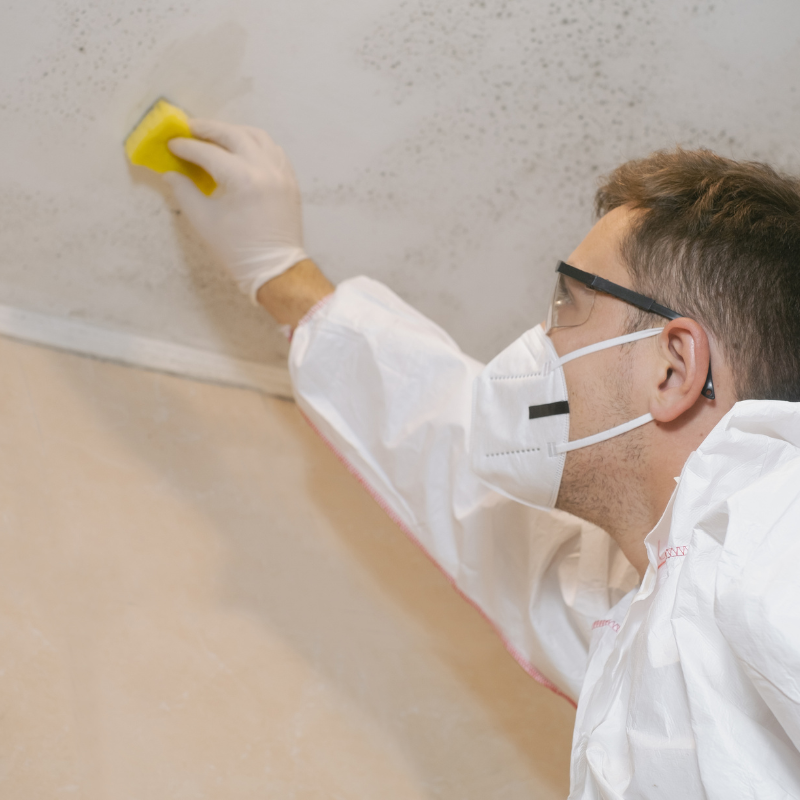
In the real estate market in North Carolina, selling a house with mold may seem impossible, but it is possible. Potential buyers may be very worried about harmful mold, but there are things you can do to make the most money and sell your house fast.
First and foremost, dealing with mold is important, and a skilled company should be hired to clean it up. This will not only make sure that the next people who live there are safe, but it will also raise the value of your home.
Also, pointing out any recent changes or improvements that have been made to the house can help hide the mold issue and show off what the house can do. You can sell a moldy house in North Carolina’s tough real estate market and still make money if you are honest with potential buyers and give them all the information they need.
Is Mold A Deal Breaker When Buying A House?
When people in North Carolina’s real estate market try to sell a house with mold, they want to know: is mold a deal-breaker when buying a house? Mold can be a problem, but it doesn’t always have to be a deal-breaker.
In North Carolina’s tough real estate market, making the most money and selling a moldy house is still possible if you take the right steps and approach.
Many buyers are ready to look past mold if they can see the property’s potential and are given a detailed plan for fixing the problem.
Sellers can get through the difficult process of selling a moldy house by facing the problem head-on and working with pros who know what they’re doing. In the end, everyone wins.
Does Mold Need To Be Disclosed?
When selling a house in the competitive real estate market of North Carolina, maximizing profit is always a top priority for homeowners. However, disclosing this information to potential buyers may seem daunting if your property has been affected by a mold infestation.
While no specific law in North Carolina requires sellers to disclose mold issues, it is considered good practice and can save you from future legal troubles. Furthermore, failing to disclose mold can significantly decrease the value of your home and make it harder to sell.
Transparency ensures a smooth transition when selling your home in North Carolina’s real estate market. It’s vital to address any mold issues upfront and eradicate them before listing your property. Remember, honesty paves the path to successful transactions. Have questions or concerns? Reach out to us—we’re here to help!
These findings apply to all counties in North Carolina, including Wilmington, Greensboro, Charlotte, Raleigh, Fayetteville, and Asheville. If you want to sell a house in North Carolina, then give John Buys Your House a call today.
Additional Resources For Charlotte Sellers
Get An Offer Today, Sell In A Matter Of Days…
| INDOOR MOLD | HOMEBUYER | HEALTHY LIVING | CRAWL SPACE | BASEMENT | MORTGAGE LENDERS |
| PROPERTY VALUE | OPTIONS | INSURANCE | INSURERS | HOME INSPECTOR | HOME INSPECTION |
| COSTS | TIME-CONSUMING | BATHROOM | SPORES | SYMPTOMS | CASH |
| IMMUNE SYSTEMS | EXPERTS | EXPERTISE | AILMENT | MEDICAL CONDITION | |
| AIR QUALITY | ADVERSE EFFECTS | ENVIRONMENTAL PROTECTION AGENCY | TRANSPARENCY | BLACK MOLD | SNEEZING |
| RUNNY NOSE | NOSE | NEGOTIATIONS | MOLD SPORES | LUNGS | SUED |
| ITCHING | INFECTIONS | IMMUNOCOMPROMISED | COMPROMISED IMMUNE SYSTEMS | EYE | EVIDENCE |
| DRYWALL | DEHUMIDIFIERS | CARPET | BLEACHING | BLEACH | ASTHMA |
| ALLERGIC REACTION | ALLERGY | TYPES OF MOLD | MOLD IN A HOME |

